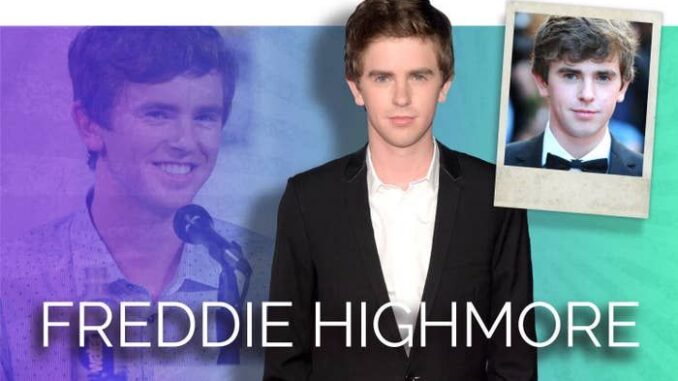
When Freddie Highmore signed on to star in The Good Doctor, few could have predicted the profound impact this role would have — not just on his career, but on television drama as a whole. Known for his compelling performances in Finding Neverland, Charlie and the Chocolate Factory, and Bates Motel, Highmore had already proven himself a force to be reckoned with. But in joining a project helmed by House creator David Shore, the young British actor was stepping into new territory: network medical drama, leading man status, and producing responsibility.
At the heart of The Good Doctor is Dr. Shaun Murphy, a young surgeon with autism and savant syndrome who navigates the high-stakes world of medicine while challenging preconceived notions of what it means to be capable. Highmore not only brought the character to life with intense depth and nuance, but also helped shape the show behind the scenes, serving as a producer and occasionally stepping into the director’s chair.
Highmore’s casting was no accident. David Shore and Sony Pictures Television needed someone who could portray Shaun’s social awkwardness and emotional honesty without turning the character into a stereotype. Highmore immersed himself in autism research, consulted with medical professionals, and approached the role with empathy and intelligence. His preparation paid off: viewers and critics alike praised his performance, with many members of the autism community calling it respectful and deeply human.

But what truly set Highmore’s journey apart was his transformation into a multi-hyphenate creative. After only one season, he began taking on more control behind the camera, directing episodes and contributing to story arcs. This marked a new phase in his career — one where he wasn’t just the face of a hit show but also one of its driving creative forces. His leadership became even more vital as the show tackled complex issues like healthcare inequality, institutional bias, grief, and trauma.
Off-screen, Highmore remained as charmingly private and modest as ever. Rarely active on social media and averse to red carpet glitz, he focused on craft rather than celebrity. His quiet confidence and thoughtful interviews endeared him to fans, especially as he expressed gratitude for the opportunity The Good Doctor had given him to learn and grow. It wasn’t just a job — it was a mission to tell meaningful stories and elevate underrepresented voices.
The collaboration with David Shore also echoed his earlier work on Bates Motel, where he worked closely with showrunner Kerry Ehrin. There, he had already started to explore writing and producing. But The Good Doctor solidified his status as a creative powerhouse. Not content with acting alone, he became an executive producer and was reportedly involved in the development of a new comedy with Ehrin as well — showing that his storytelling ambitions extended far beyond drama.
As The Good Doctor wrapped its final seasons, Highmore spoke candidly about what the experience meant to him. He described the role of Shaun as “life-changing” and often reflected on the responsibility of portraying a character who defied convention. “I’m proud of how the show opened conversations,” he once said, “and how Shaun, in his own way, inspired people to look at the world differently.”
Looking ahead, Freddie Highmore has limitless possibilities. Whether he continues to star in front of the camera or shifts more into writing, directing, or producing, his experience on The Good Doctor has given him a launchpad unlike any other. And for fans who’ve followed him since his childhood roles to this mature, career-defining moment, it’s clear he’s not just a brilliant actor — he’s an artist with vision, integrity, and heart.
In the ever-evolving landscape of television, few stories are as inspiring as Freddie Highmore’s. From a young boy portraying Peter Llewelyn Davies to a grown man shaping network television, he has navigated his career with a blend of intellect and instinct. And thanks to his leap of faith in taking on David Shore’s medical drama, he didn’t just find a new role — he found his voice.
